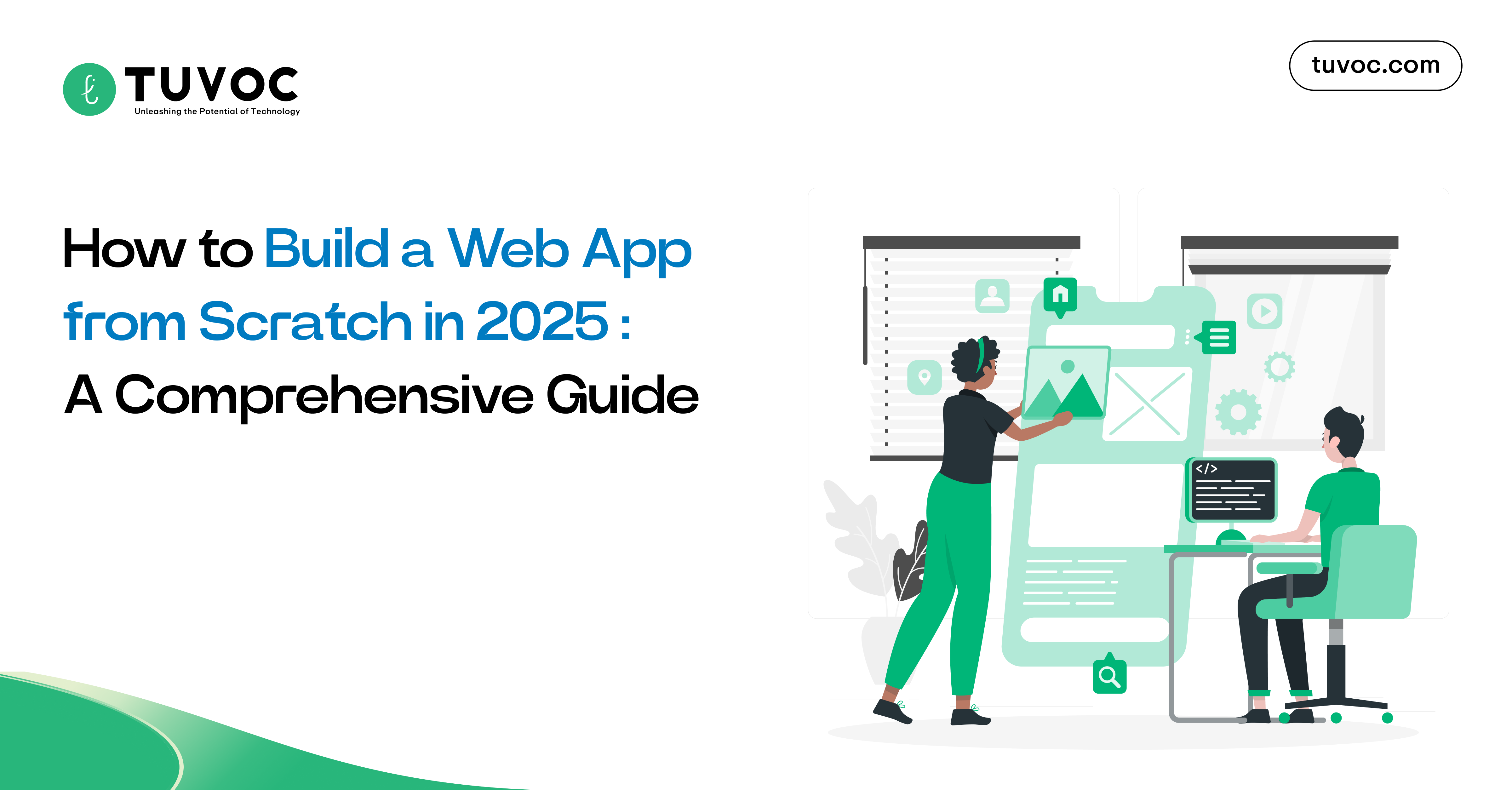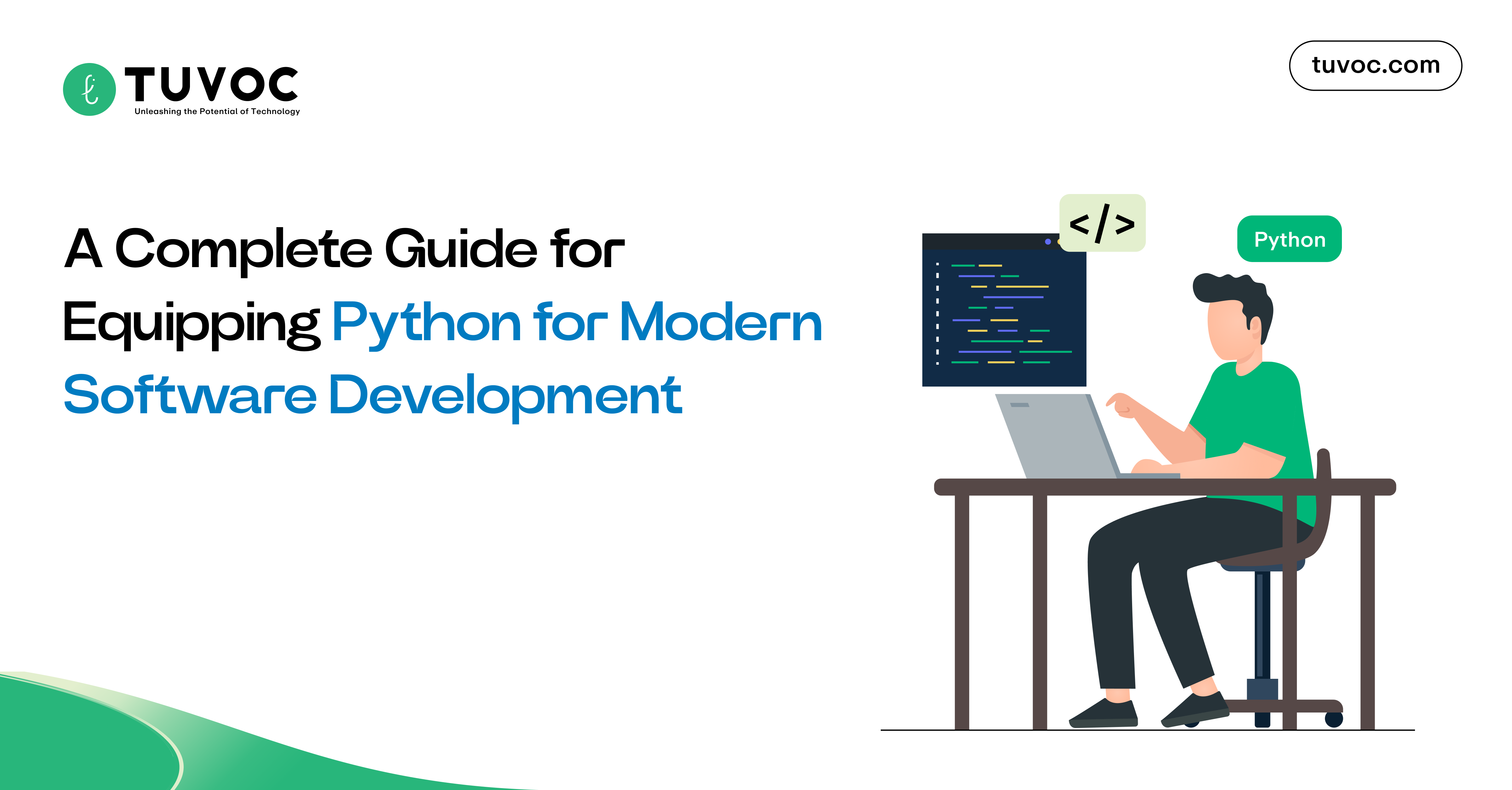Top PHP Web Development Trends to Watch in 2025

As we are about to enter 2025, PHP continues to demonstrate its strength as a reliable and adaptable programming language. At Tuvoc Technologies, as a leading PHP Development Company, we have carefully analyzed the most significant developments that are shaping the future of web development. With this comprehensive blog we will be exploring the trends that will define PHP web development throughout 2025 and beyond.
1. The Revolution of PHP 8
The implementation of Advanced PHP 8 features has fundamentally changed how developers approach PHP programming. At the center of this transformation is the Just-In-Time (JIT) compilation feature, which has delivered exceptional performance improvements, particularly for computation-heavy applications. When organizations hire PHP developer talent today, They are increasingly seeking pros who can maximize these powerful options to create a more efficient and robust applications.
The intro of Union Types and Named Arguments has severely enhanced reliability and maintainability of the codes. Union Types will actually allow developers to specify multiple possible types for properties, parameters, and return values, leading to a more flexible yet type-safe code. Named Arguments have changes how developers work with a more complex functions, making code more readable and self-documenting. These features have particularly improved the development experience when working with a more large databases and complex applications.
The new Attributes systems in PHP 8 has introduced a more powerful metadata capabilities that have changed how developers approach framework integration and code organization. This system allows developers to add structured, machine-readable meta data to classes, properties, functions and methods. Framework developers have leveraged this features to create a more intuitive APIs, while application developers use it to implement a more sophisticated business logic and validation rules.
2. Developer Experience Takes Center Stage
Modern PHP Development Services have evolved to prioritize developers productivity more through advanced tooling and intelligent assistance. The integration of AI into the development field has created unprecedented opportunities for code optimization and error prevention. Current PHP developers work with a more sophisticated IDEs that offer real-time code analysis.
Static analysis tools have become increasingly more sophisticated, offering developers insights into potential issues before they manifest in production. These tools can now easily integrate with continuous integration pipelines, ensuring the code quality remains consistent throughout the development lifecycle. The rise of automated code review systems has also transformed how development teams collaborate, making code reviews more thorough and efficient.
3. AI Integration
As a seasoned PHP development company, we have observed a notable rise in the demand for AI-driven functionalities in web applications. The PHP ecosystem has evolved to facilitate advanced AI integration through different strategies. The native PHP-ML library has enhanced its functionalities, providing developers with tools to incorporate machine learning algorithms directly into their PHP applications. This integration supports capabilities such as predictive analytics, pattern recognition, and automated decision-making systems.
Natural Language Processing is increasingly vital in contemporary web applications. PHP developers are deploying advanced chatbots, systems for content analysis, and tools for automated content generation. These capabilities are improved by connecting with sophisticated AI services via APIs, enabling PHP applications to utilize robust machine-learning models while ensuring high performance and scalability.
4. Security-First Development Approach
In contemporary PHP web development services, the approach to security has evolved to be more sophisticated and proactive. Developers of frameworks have adapted to changing security threats by incorporating extensive security features within their tools. Today’s PHP frameworks offer advanced encryption, strong authentication processes, and complex access control systems.
Real-time threat detection and automatic vulnerability scanning have become essential features in PHP applications. Development teams are increasingly utilizing security logging and monitoring systems to obtain comprehensive insights into potential security issues. Often, these systems incorporate automated response capabilities that can detect and prevent attacks before they cause significant damage.
5. Progressive Web Applications (PWAs)
The rise of Progressive Web Applications has become essential in PHP Development Services. PWAs merge the advantages of web and mobile apps, providing users with a smooth experience on any device. A crucial element of PWAs, service workers, allow advanced caching techniques and offline capabilities, greatly enhancing user experience in environments with poor connectivity.
Contemporary PHP frameworks have progressed to facilitate PWA development with specialized tools and libraries. These frameworks deliver comprehensive solutions for features such as push notifications, background synchronization, and responsive design. Consequently, web applications provide experiences akin to native apps while preserving the accessibility and broad reach of conventional web applications.
6. API-First Development and Microservices

The contemporary method of PHP development now prioritizes an API-first architecture and microservices. When companies seek PHP developers today, they want professionals skilled in these modern architectural frameworks. Well-known PHP frameworks such as Laravel and Symfony have advanced to offer powerful tools for creating and managing APIs, accommodating a range of services from RESTful to GraphQL.
Key advances in API development include:
- Advanced authentication systems integrating OAuth2 and JWT
- Sophisticated rate limiting and throttling mechanisms
- Automated API documentation generation
- Versioning management systems
The microservices architecture has revolutionized the development and management of large-scale PHP applications. Today, modern PHP applications typically comprise multiple independent services, each focusing on distinct business functions.
This architectural model provides numerous benefits: implementing microservices in PHP has resulted in more robust applications that can scale individually according to demand. Development teams are now able to deploy updates to particular services without impacting the entire application, thereby minimizing deployment risks and enhancing maintenance efficiency.
7. Cloud-Native Development Evolution
The development of cloud technologies has transformed the deployment and management of PHP applications. Today, many PHP applications are designed with cloud-native principles, utilizing containerization and orchestration tools to achieve remarkable scalability and reliability.
Cloud integration features now include:
- Sophisticated container orchestration with Kubernetes
- Serverless PHP function deployment
- Multi-cloud deployment strategies
- Automated scaling and load balancing
Cloud-native development practices have revolutionized the approach of PHP Development Services toward application architecture. Developers now consider distributed systems while building applications, employing patterns that guarantee both reliability and performance in various cloud environments.
8. Voice Search and Natural Language Processing
Integrating voice technology with PHP web development services has introduced new possibilities for user interaction. Today, PHP applications increasingly feature voice interfaces and natural language processing, enhancing user accessibility and intuitiveness.
Voice integration development has evolved to include:
- Advanced speech recognition and processing
- Multi-language voice support
- Context-aware voice commands
- Voice-enabled form-filling and navigation
PHP applications are increasingly using sophisticated Natural Language Processing techniques, making it easier for them to comprehend user intent and deliver more precise responses. As a result, search capabilities have enhanced, leading to more intuitive interactions for users across web platforms.
9. Community-Driven Innovation
The PHP community is a significant asset for the language, propelling innovation and enhancement through collaborative development and shared knowledge. Its open-source nature has cultivated a dynamic ecosystem of frameworks, tools, and libraries that consistently evolve and progress.
Recent community developments include:
- Enhanced testing frameworks and methodologies
- Improved dependency management systems
- Advanced debugging and profiling tools
- Standardized coding practices and guidelines
The community’s focus on education and documentation has made it easier for new developers to learn and adopt PHP best practices. Regular conferences, workshops, and online forums continue to facilitate knowledge exchange and professional development within the PHP community.
10. Performance Optimization and Monitoring
Modern PHP Development Services place a strong emphasis on performance optimization and monitoring. The introduction of advanced profiling tools and performance monitoring systems has made it easier to identify and resolve performance bottlenecks in PHP applications.
Key performance optimization areas include:
- Advanced caching strategies
- Database query optimization
- Asset compression and delivery
- Memory management techniques
Performance monitoring has evolved to provide real-time insights into application behavior, enabling developers to proactively address issues before they impact users. Modern PHP applications implement sophisticated monitoring systems that track various performance metrics:
The integration of Application Performance Monitoring (APM) tools has become standard practice, providing detailed insights into application behavior and performance. These tools help development teams identify and resolve issues quickly, ensuring optimal application performance and user experience.
Conclusion
As we are almost near 2025, PHP is proving its capacity to adapt and flourish within the contemporary development landscape. Understanding these trends is crucial for effective project implementation, whether you’re looking to recruit PHP developer talent or in need of extensive PHP Development Services.
The integration of Advanced PHP 8 features and contemporary development practices has unlocked fresh opportunities for crafting sophisticated web applications. At Tuvoc Technologies, we utilize these advanced capabilities to develop robust and scalable solutions that address the intricate needs of modern enterprises.
Achieving success in PHP development necessitates a blend of technical skill and strategic execution. As your reliable PHP Development Company, we integrate both elements to provide solutions that satisfy your current business goals while also setting you up for future growth and success.
Get in touch with our team today to discover how we can assist you in integrating these trends into your upcoming web development project, helping you stay competitive in a progressively digital race.
FAQs
PHP 8 introduces Just-In-Time (JIT) compilation, Union Types, and Named Arguments, significantly improving performance and code maintainability for complex applications.
AI integration in PHP allows developers to create advanced functionalities like predictive analytics and chatbots, enhancing user interaction and decision-making capabilities.
With increasing cyber threats, modern PHP frameworks incorporate advanced security features such as real-time threat detection and automated vulnerability scanning to protect applications.
PWAs combine the best of web and mobile apps, offering offline capabilities and enhanced user experiences, which PHP frameworks are increasingly supporting with specialized tools.
Microservices allow developers to build modular applications that can scale independently, improving flexibility and reducing deployment risks in large-scale systems.






